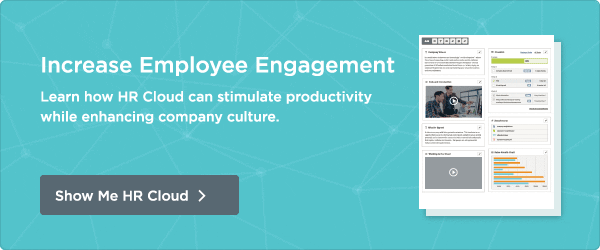

 Cut onboarding time
by 60%—here's the
Ultimate Checklist
that helped do it.
Cut onboarding time
by 60%—here's the
Ultimate Checklist
that helped do it.

Ask yourself a question: "How much do we rely on social media to make our hiring decisions?” If the answer is “pretty much all the time,” you may want to reconsider.
HR professionals need to be cautious when over-relying on social media recruiting. According to new research, companies that screen the social media accounts of job applicants alienate potential employees, making it harder for them to attract top job candidates.
Rolling the Dice
Remember when recruiting meant placing an ad in the city paper and waiting for resumes? You may have done a few phone screens, but an in-person interview was the best way to determine fit. Checking references was also a great source of information, but you really had no way of knowing if “Charlie” was really the candidate’s current manager… or his uncle. Back then, we did our best and hoped for a great hire.
Today, we don’t have to roll the dice. We have many more avenues for making sure we hire the right person for the right job. Granted, checking references these days (due to lawsuits) is less effective, and most employers decline to provide any performance information. In fact, many use a third-party verifier that confirms dates worked, salary history, and job title. Nothing more. But, that’s okay. Social media can typically fill in the gaps and help pave the way to a successful hiring experience. The tricky part is finding the right balance—casual information gathering vs stalking your candidate’s Facebook photos back to 2008, hunting for an inappropriate photo.
Survey Says…
In a pair of studies conducted by North Carolina State University, researchers found candidates reacted negatively to screening of their social media accounts. Privacy was the number one concern.
In the first study, 175 participants who had applied for a job online were told that their Facebook accounts had been reviewed for “professionalism,” and that a decision on whether they’d been hired was forthcoming.
Of the 175 participants, two-thirds reported finding the prospective employer less attractive because they felt the Facebook screening was an invasion of privacy that reflected poorly on the company.
The results were conclusive. Candidates were not likely to look highly on a company that appears to violate their privacy.
In a second study, 208 participants were asked to envision a hypothetical scenario in which a prospective employer reviewed their Facebook profiles for professionalism. Half of the participants were asked how they’d respond if they had gotten the hypothetical job, while the other half were asked how they’d respond if they hadn’t gotten the job.
The job offer made little difference, with 60% of participants in both groups reporting a negative view of the potential employer due to a sense of having their privacy violated.
To avoid alienating your talent pool, you must carefully determine how and when you use social media in the recruiting process.
Best practice indicates using social media as one factor among a variety of factors. Use it in combination with others.
• Social media is a great way to reach candidates and search for special certifications or skill sets. You can also use LinkedIn to check references or look for contacts you might have in common.
• The key is understanding intent. Are you using social media to “investigate” your candidates or to read up on their professional experience?
• Remember, discrimination is also a potential risk. You must comply with federal labor laws and regulations.
• Keep in mind, information is not always accurate and forming bias before verifying may cause you to miss out on a great hire.
Hitting the Jackpot
The recruiting process can be difficult but the right balance of screening social accounts can make your job easier and more productive. Use it wisely to find the best talent but to also demonstrate your organization’s commitment to protecting the privacy of your employees.

Keep Reading
Specialized Onboarding Software for Healthcare to Reduce Admin Work and Scale Hiring Fast
Imagine this: a women’s health clinic hires two new nurses, only to lose both within
A Closer Look at HR Cloud-ADP Integrations
ADP is the gold standard for payroll and core HR management. But if you’ve ever tried to
Retention Reset: How to Keep Your Best Talent in 2025
More employees are walking away from their jobs in 2025 not just for better pay, but for
Like What You Hear?
We'd love to chat with you more about how HR Cloud® can support your business's HR needs. Book Your Free Demo

Build a Culture of Recognition. Boost Engagement. Guaranteed.
Workmates empowers employees to stay informed, connected, and appreciated—whether they’re on the front line, in the office, or remote. Recognition drives 12x higher engagement.Trusted by industry leaders in every sector




Cut Onboarding Costs by 60%.
Take the confusion and follow-ups out of onboarding with automated workflows, digital forms, and structured portals—so new hires ramp faster 3X quicker.Trusted by industry leaders in every sector





